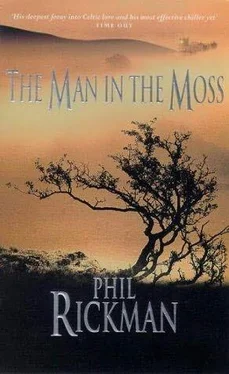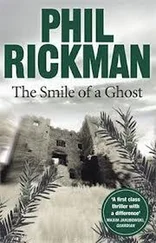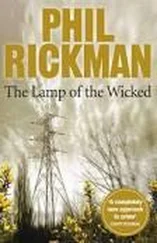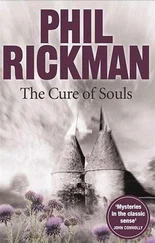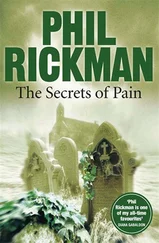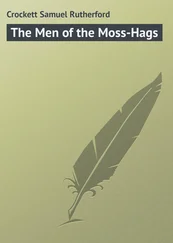Phil Rickman - The man in the moss
Здесь есть возможность читать онлайн «Phil Rickman - The man in the moss» весь текст электронной книги совершенно бесплатно (целиком полную версию без сокращений). В некоторых случаях можно слушать аудио, скачать через торрент в формате fb2 и присутствует краткое содержание. Жанр: Триллер, на английском языке. Описание произведения, (предисловие) а так же отзывы посетителей доступны на портале библиотеки ЛибКат.
- Название:The man in the moss
- Автор:
- Жанр:
- Год:неизвестен
- ISBN:нет данных
- Рейтинг книги:5 / 5. Голосов: 1
-
Избранное:Добавить в избранное
- Отзывы:
-
Ваша оценка:
- 100
- 1
- 2
- 3
- 4
- 5
The man in the moss: краткое содержание, описание и аннотация
Предлагаем к чтению аннотацию, описание, краткое содержание или предисловие (зависит от того, что написал сам автор книги «The man in the moss»). Если вы не нашли необходимую информацию о книге — напишите в комментариях, мы постараемся отыскать её.
The man in the moss — читать онлайн бесплатно полную книгу (весь текст) целиком
Ниже представлен текст книги, разбитый по страницам. Система сохранения места последней прочитанной страницы, позволяет с удобством читать онлайн бесплатно книгу «The man in the moss», без необходимости каждый раз заново искать на чём Вы остановились. Поставьте закладку, и сможете в любой момент перейти на страницу, на которой закончили чтение.
Интервал:
Закладка:
Well. Cathy's Lady – you'll laugh, or perhaps you won't – wore a duffel coat.
She appeared to be sitting next to the lass on the wall. She was not beautiful, Cathy says, but her aura of feminine grace was so powerfully calming that the air became still and soft and moist, and even the rugged stones beneath her felt like cushions.
She remembers hanging her head, her chin upon her chest, and the lady stroking her hair. Or at least it was stroked.
About the duffel coat.
My researches tell me that the priests and priestesses of Ancient Britain – the shaman class, if you will – would usually be attired for ceremonial purposes in a loose, hooded garment of blue wool. Quite when the duffel coat, as we know it, reappeared I don't know; my knowledge of social history has never extended to fashion trends, but it has always struck me as curiously meaningful that, while most coats are fastened with plastic buttons or zips, the duffel is secured by pegs of wood. Or (even more interesting) of horn. But I digress.
The next thing Cathy remembers is standing at a point halfway between the end of the pub forecourt and the first of the ruined cottages. The peat was up to her knees.
Our Lady of the Duffel Coat was gone.
And so was the stone.
Cathy says she felt nothing; neither relief nor the old despair. She was an empty vessel. It was not until later that she would recall the lady in any supernatural sense. She had been as real as the stone, which Cathy had no memory of depositing.
Now there was only the practical problem of avoiding death on the drowning side of the village.
The Beacon of the Moss was alight again, courtesy of Alf Beckett and his floodlight. It threw a strange glimmer on the black surface of a new river flowing between great banks of peat down the middle of the street. From out of a mound of peat, a stiffened arm protruded, the fingers curled and black.
From behind her, Cathy heard voices. She turned her back on the street and waded towards the sound, coming at last to the most southerly part of the village which ran down to the Moss near the causeway and where, she remembered, Lottie Castle was to have placed her stone.
It was here that Cathy became the last person to see Shaw Horridge and Therese Beaufort – later formally identified as one Tessa Byford – alive.
The effects of the Burst at this southern point were somewhat less marked. Although the Moss had overflowed the causeway in places (which was to cause serious delays for the rescue service vehicles) it had not reached a life-threatening depth for an adult.
The man and woman were thigh-deep at the edge of the causeway, and Cathy was about to call out to them when she realized who they were. Lady Strychnine, as she'd referred to Therese, was hissing at Shaw to get back and leave her and attempting to disengage his hand from around her wrist. Shaw, it appeared, was trying to drag her back towards the village and laughing in a voice which Cathy has described to me as surprisingly coarse and cruel.
'Come on,' Shaw was shouting, almost gleefully. 'Come back. You can do it. You'll feel so much better.'
He kept repeating this phrase, hitting her with it, Cathy says, and pulling at her arm, and Therese was screaming shrilly and at one stage actually vomiting with fear.
'Lottie's stone, you see,' Cathy is telling me. 'Therese couldn't go past the stone.' And it was then that I realized' – Cathy shakes her head in incomprehension – 'that it had worked. That we'd done it. That the Bridelow Mothers' Union was able to function.'
And knowing what she knew about the woman (not half of what we now know) Cathy felt no great pity when Shaw Horridge quickly let go of Therese's wrists and suddenly delivered an enormous blow to her face with his fist.
All this time Cathy had been backing away up the street towards the village centre, and she turned around just once to see Shaw Horridge walking very slowly and deliberately up the street with Therese's slender body hanging limply from his arms. As I recorded earlier, it was two days before the corpses were found. This happened when an executive of Gannons accompanied the company's insurance assessor into the brewery to see what minor damage had occurred.
They would hardly have bothered to go into the malt loft even it had not been firmly locked and no keys apparent. As it was, they progressed no further than the second level where the 'coppers' stand.
These are the huge tanks in which the 'wort', as the initial preparation is known, is mixed with the hops (or bog myrtle in old Bridelow Brewery days) which preserve the beer and give it that all-important bitter quality.
It appeared that Shaw, quite methodically, had lit the oil- boiler and gone about the beer-making process on his own, something which, to my own knowledge, he had been able to do since the age of twelve under the paternal eye of Arthur Horridge.
The operation must have taken Shaw several hours, by which time the village was teeming with urgent life: fire and ambulance personnel, moorland rescue teams, television crews; at least two helicopters overhead. I wonder, what state was Therese in during this period? Was she conscious? Did she know what was to happen? Was she – already forcibly conveyed beyond a boundary which she had been psychologically incapable of crossing unassisted – in any state to object?
The copper, by the way, is also known as the 'brew kettle' because in it the hops are boiled into the wort preparatory to the addition of yeast.
They say the insurance assessor passed out after finding the bodies of Shaw and Therese, which must have boiled for nearly two hours before the boiler, reaching danger-level, had automatically cut out.
Was this, I wonder, another example – drowning, boiling and perhaps, in Therese's case, simultaneous strangulation – of that ancient mystery, the Celtic Triple Death?
What was Shaw's state of mind? Was he angry? Embittered? Remorseful? Or a dangerous brew of all three?
Tell me,' I ask Cathy. 'When you heard them on the edge of the Moss, was Shaw stuttering, as he used to do? You know… You'll fer-fer-feel ber-ber-better?'
'No,' she says. 'I'm pretty sure he wasn't.'
'I'm glad,' I say. Poor Mungo.
His larynx full of peat, his eyes staring up in terminal terror into the eyes of the madman Stanage, his mouth no doubt full of flip New York obscenities which he now knew he would never utter.
Poor lad.
The stranger in a strange land. Thrown upon the Scottish shore with the instruction, I am told, to discover his 'roots'.
By 'eck. How gullible some of these Americans are apt to be.
And the winds of fate… nay, the typhoons of fate, can sometimes pick you up and put you down precisely where you wanted to be. Only when you look around, do you realise it's the very last place you wanted to be.
He found his Celtic roots, all right. We might not wear kilts or speak a different language or owt like that, but I reckon we've been closer in Bridelow to the true Celtic way – Shades of things, Ernest! (Aye, thank you, Ma) – than you'll find in any lonely hamlet in Sutherland or Connemara. And I think it will survive. I think the Mothers will watch over the rebuilding of a stronger Bridelow, I doubt they'll ever again 'let things slide'.
Cathy won't let them.
Did you know, Hans, by the way, that your daughter was coming to the end of her second and final year at a very reputable theological college outside Oxford? I bet you didn't. I bet she just kept telling you she was doing 'post-graduate research' or something of that order.
But Ma Wagstaff knew. Ma Wagstaff spoke more than once of the 'one who'll come after me' and everybody laughed because it sounded so quaintly biblical.
They have a fund, you know, the Mothers. A bank account in Glossop or Macclesfield or somewhere, to which unexpected windfalls and bequests are added from time to time, and there was sufficient money in that to put Cathy through theological college without anyone knowing.
Читать дальшеИнтервал:
Закладка:
Похожие книги на «The man in the moss»
Представляем Вашему вниманию похожие книги на «The man in the moss» списком для выбора. Мы отобрали схожую по названию и смыслу литературу в надежде предоставить читателям больше вариантов отыскать новые, интересные, ещё непрочитанные произведения.
Обсуждение, отзывы о книге «The man in the moss» и просто собственные мнения читателей. Оставьте ваши комментарии, напишите, что Вы думаете о произведении, его смысле или главных героях. Укажите что конкретно понравилось, а что нет, и почему Вы так считаете.
